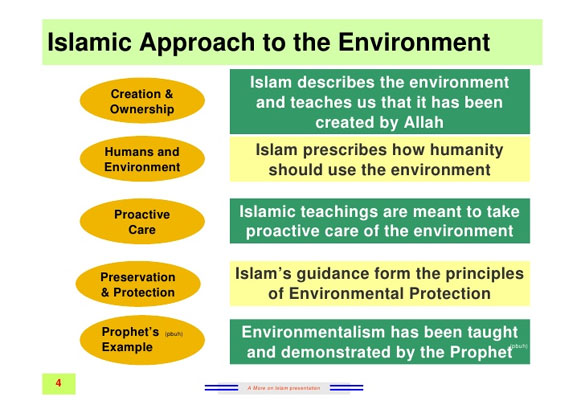
By Arman Neyazi, New Age Islam
9 June 2021
Humankind As A Vicegerent Of Allah, The Almighty Is Not Doing Justice With His Responsibility Of Conserving The Environment, An Inseparable Part Of His Life
Main Points:
1. Environmental imbalances are creating havoc in the world, at regular intervals.
2. Melting of glacier and changing of weather condition has created a shock wave in the minds of weather scientists and environmentalists alike.
3. If immediate action is not taken to safeguard the environment human being is going to face a real danger of extinction from the planet earth.
4. Every religion on planet earth advocates the necessity of grooming the environment.
-----

ID 74844293 © Pop Nukoonrat | Dreamstime.com
-----
Environmental imbalances are creating havoc in the world, at regular intervals. It has taken the shape of a devastating natural calamity. Humankind as a vicegerent of Allah, the Almighty is not doing justice with his responsibility of conserving the environment, an inseparable part of his life. Non-conservation of the environment is not only transforming human life in hell but has left it in a condition that man fears will devour the planet earth sooner than later.
Melting of glacier and changing of weather condition has created a shock wave in the minds of weather scientists and environmentalists alike. They are unable to read the changing pattern of the weather, to say the least. The everyday weather forecasts are going haywire.
If immediate action is taken in this regard, the human being is going to face a real danger of extinction from the planet earth. Every living being indeed has to die. And die at its pre-fixed time. But the destruction of the environment will make living more painful than that of dying.
Religious Commands to Preserve the Environment
Every religion on planet earth advocates the necessity of grooming the environment. The religions command their followers to look after the beautiful world taking it as a gift of the Creator to the Creation. The description of natural beauty and its usage for the human being should be taken as commands of the Creator of the universe. Consider the following teachings of various religions:
I pervade the Universe. All objects in the Universe rest on me as pearls on the thread of a garland. (Sri Krishna in the Bhagavad Gita)
Let the human community protect the environment for their survival and the biodiversity around it. (Sri Krishna in the Bhagavad Gita)
“Whoever plants a tree and diligently looks after it until it matures and bears fruit is rewarded,” (Hadees of Prophet Muhammad Pbuh in Musnad)
Lord Buddha taught people to use nature wisely, and learn from nature to help improve their minds and behaviours. (Prayutto (1997)
"One who neglects or disregards the existence of earth, air, fire, water and vegetation disregards his own existence which is entwined with them". (Mahavira)
Air is the Guru, Water the Father, and the Earth is the Great Mother. (Guru Granth Sahib, page 8)
The Lord God took the man and put him in the Garden of Eden to work it and take care of it. (Genesis 2:15)
From Hinduism to Islam to Buddhism, Sikhism, Jainism and Judaism all the religions and all other religions and religious faiths, not mentioned here, are in unison on the need to preserve the environment as on other different subjects concerning mankind.

(Photo courtesy: Slide Share)
-----
The Holy Quran and the Importance of Environment
The following Ayat explicitly showcase how much Allah, the Most Kind and Merciful loves His creation, the animals, the birds, the mountains, the oceans, the rivers and the greeneries on the whole and especially humankind. Allah says He is the creator of the universe and all the human being are His representatives on the earth, let, therefore, His vicegerent take care of everything from human beings to nature. It is in this context that He says in the Holy Quran, ‘Seek the life to come by means of what God has granted you, but do not neglect your rightful share in this world...’ (Surah Al-Qasas - 77) — Abdul Haleem.
Beautiful Quranic Ayat that describe the grandeur and the importance of the environment to humankind are being mentioned underneath so that we understand what we must do to obey Allah, the All-knower and make our and our fellow beings life serene:
...“ Follow the nature designed by Allah, the nature according to which He has fashioned mankind; there is no altering the creation of Allah.” (Surah Al-Roum: 30)
“And there is no animal that walks upon the earth nor a bird that flies with its two wings but they are like yourselves; We have not neglected anything in the book, and then to their Lord shall they be gathered.” (SurathAl-An’am:38)
“He created the heavens without pillars as you see them, and put mountains upon the earth lest it might convulse with you, and He spread it with animals of all kinds; and We sent down water from the clouds, then caused to grow therein (vegetation) of every noble kind.” (Surah Luqman: 10)
“And the Earth, We spread it out and cast therein firmly set mountains and We have made to grow therein of all beautiful kinds; to give sight and as a reminder to every servant who turns to Allah.” (Surat Quaff: 7-8)
“He causes to grow for you thereby herbage, and the olives, and the palm trees, and the grapes, and of all the fruits; most surely there is a sign in this for a people who reflect.” (Surah Al-Nahl: 11)
“Do you not see that Allah (SWT) has made what is in the heaven and earth subservient to you and made complete to you His favours outwardly and inwardly?” (Surah Luqman:20)
“He Who created all things in the best way and He began the creation of man from clay.” – (Surah Al-Sajdah: 7)
“Eat of all the fruits and walk in the ways of your Lord submissively. there comes forth from within it a beverage of many colours, in which there is healing for men; most surely there is a sign in this (life of bees) for a people who reflect.” (Surat Al-Nahl: 69)
Conservation of the environment is necessary as the environment is ingrained in our entity as the Holy Quran states; the human being is the by-product of water and earth. Consider the following Ayat:
Verily We created man from a product of wet earth; (Al-Mu'minun: 12) — Pickthall
Something that is a part of our life ingredients should be respected and conserved to respect and conserve our life.
Prophet Muhammad Pbuh And His Teachings about Environment
The Holy Prophet Muhammad Pbuh lived an exemplary life according to the command of Allah, the Most Gracious not only to spread the message of Oneness, Namaz, Roza, Zakat and Haj but also made the people of his time realise the value of the environment by respecting and beautifying it. Consider the following Ahadees:
“The world is beautiful and verdant, and verily God, be He exalted, has made you His stewards in it, and He sees how you acquit yourselves.” (Muslim)
“If a Muslim plants a tree or sows seeds, and then a bird, or a person or an animal eats from it, it is regarded as a charitable gift (Sadaqah) for him.” (Bukhari)
One day Prophet Pbuh passed by Sa`d ibn Abi Waqas (RA) while he was performing wudu’. The Prophet (saw) asked Sa`d: “What is this wastage?” Sa`d replied: “Is there wastage in wudu also?” The Prophet said, “Yes, even if you are at a flowing river.”(Ibn Majah)
Likening a believer with a growing tree, the Prophet Pbuh said: “The example of a believer is that of a fresh tender plant; from whatever direction the wind comes, it bends it, but when the wind quietens down, the plant becomes straight again…” (Bukhari)
Mu`adh (RA) reported that the Prophet warned: “Beware of the three acts that cause you to be cursed: First, relieving yourselves in shaded places (that people utilise), in a walkway or in a watering place……” (Ranked sound, Hasan, by Al-Albani)
“Removing harmful things from the road is an act of charity (Sadaqah).” (Narrated by Abu Dharr Al-Ghafari, Riyadh As Saliheen)
Earth is the Mother - Teachings from Hinduism on Environment
The ancient Hindu teaching, ‘The Earth is our mother and we are all her children manifests the belief Hinduism stands for. Environment finds innumerable references in Hindu epics like the Vedas, Sutras, Upanishads and Puranas and because of its reverence to the environmental bodies, people worship trees, water and animals as different forms of gods.
The following diverse theologies of Hinduism evoke respect and the importance of the environment.
• The earth can be seen as a manifestation of the goddess and must be treated with respect.
• The five elements — space, air, fire, water and earth — are the foundation of an interconnected web of life.
• Dharma — often translated as “duty” — can be reinterpreted to include our responsibility to care for the earth.
• Simple living is a model for the development of sustainable economies.
• Our treatment of nature directly affects our karma.
(Courtesy) The Huffington Post/10 Hindu Environmental Teachings
“Yavat Bhumandalam Datte Samrigavana Karnanam, Tavat Tisthati Medhinyam Santatih Putra Pautriki”: “so long as the Earth preserves her forests and wildlife, man’s progeny will continue to exist.” This is the Hindu approach toward the conservation of ecology. (-Swami Vibudhesha Teertha)
Jainism and Environment: Ahimsa Paramo Dharma
Ahimsa Paramo Dharma (अहिंसा परमॊ धर्मः) is the essence of Jainism. Jainism is based on the concept of non-violence. They do not even harm the smallest of the species. Jains eat their dinner before the sunset so that no. Jains do not harm the animals, the trees, the flowers and all other things that constitute the environment as these things are also regarded as a living being. Consider the following sayings from Mahavira and Jain Scripture:
Do not injure, abuse, oppress, enslave, insult, torment, torture or kill any creature or living being. (Jain Scripture)
there is no quality of soul more subtle than non-violence and no virtue of spirit greater than reverence for life. (Mahavira)
Buddhism And It's Environmental Education
Skamp (1991) concludes the importance of spirituality and environmental education as follows:
Spirituality has been argued to be the centre of our relationship with the environment. Environmental educators need to be aware of this spiritual dimension... students of environmental education need to be conscious of their connectedness with themselves, others, and the environment, near and far, past and present...the importance of spirituality cannot be overlooked.
Our response to 'Truth' as we see it (conscious or otherwise) will be a powerful (perhaps the) determinant of the actions we take for the environment (Skamp, 1991, p.84).
...teachers of environmental education need to seriously consider the role of spiritual development of the students in their care when they are focusing upon humankind, with the world in which they live. (Skamp, 1991, p.85).
(Courtesy: Procedia Social and Behavioural Sciences)
Sikhism: Creator and the Creation are One
Sikhism is a religious faith based on the teachings of Sikh Gurus. It says that the Creator and the Creation are one. It means God and Universe, the environment included, is the same. This line of teaching suggests that Sikhism understands the value of the environment and hence commands its followers to protect it from every kind of corrupt practices.
Following are the teachings of Sikh Gurus and Guru Granth Sahib on the importance of the environment:
He, the Lord, knows their condition, O Nanak. Nanak, having created beings, the lord takes care of them all. The creator who created the world, He takes thought of it as well. (Guru Granth Sahib, page 466)
“The Creator created himself…… And created all creation in which he is manifest. You Yourself the bumble-bee, flower, fruit and the tree. You Yourself the water, desert, ocean and the pond. You Yourself are the big fish, tortoise and the Cause of causes. Your form can not be known (Guru Granth Sahib page 1016)
“I perceive Thy form in all life and light; I perceive Thy power in all spheres and sight.” (Guru Granth, page 464)
“The God-conscious person is animated with an intense desire to do good in this world.” (Guru Granth Sahib, page 273)
Air is the Guru, Water the Father, and the Earth is the Great Mother.
Guru Granth Sahib, page 8
The Guru Granth Sahib teaches that Sikhs show respect and responsibility towards creation and bear in mind the needs of future generations, as well as their own current needs.
Guru Granth Sahib, page 4
“Creating the world, God has made it a place to practice spirituality” (Guru Granth Sahib, page 1035.)
A Sikh theologian, Kapur Singh, explains that Sikhism has three postulates implicit in its teachings:
“One, that there is no essential duality between spirit and matter. Two, that humans can consciously participate in the process of spiritual progression. Three, the highest goal of spiritual progression is harmony with God, while remaining earth-conscious, so that the world itself may be transformed into a spiritual plane of existence.“
“When I saw truly, I knew that all was primaeval. Nanak, the subtle (spirit) and the gross (material) are, in fact, identical.” (Guru Granth Sahib, page 281)
That which is inside a person, the same is outside; nothing else exists; By divine prompting look upon all existence as one and undifferentiated; The same light penetrates all existence. (Guru Granth Sahib, page 599)
“Men, trees, pilgrimage places, banks of sacred streams, clouds, fields, islands, spheres, universes, continents, solar systems, the sources of creation, egg-born, womb-born, earth-born, sweat-born, oceans, mountains and sentient being; He, the Lord, knows their condition, O Nanak. Having created beings, the lord takes care of them all. The Creator who created the world, He takes thought of it as well (SGGS Ji, page 467). “Men, trees, pilgrimage places, banks of sacred streams, clouds, fields, islands, spheres, universes, continents, solar systems, the sources of creation, egg-born, womb-born, earth-born, sweat-born, oceans, mountains and sentient being; He, the Lord, knows their condition, O Nanak. Having created beings, the lord takes care of them all. The Creator who created the world, He takes thought of it as well (SGGS Ji, page 467).
Judaism and Environment
Consider the following from Genesis and Psalm:
The Lord God took the man and put him in the Garden of Eden to work it and take care of it. Genesis 2:15
The earth is the Lord's, and everything in it, the world, and all who live in it. Psalm 24:1
Quranic Ayat and Hadees Traditions on Encroachment of Environment
Allah, the Most Gracious commands the people to abstain from every kind of wrongdoing with His creation, the men and the environment. Life on the planet earth without a healthy environment is out of imagination. Allah and His Rasool Pbuh command human being to respect and guard all the creations of this world. Allah, the Almighty says in the Holy Quran:
“And Allah loveth not those who do mischief” (Surat Al Ma’idah, verse 64)
“And do no mischief on the earth after it has been set in order: that will be best for you if ye have Faith” (Surat Al A’raf: 85)
“It is He who has appointed you viceroys in the earth … that He may try you in what He has given you.” (Surah 6:165)
‘And do good as Allah has been good to you. Moreover, do not seek to cause corruption in the earth. Allah does not love the corrupters’ (Al- Qasas: 77)
Above mentioned Ayat make the people responsible for the protection and conservation of everything that consists of the environment. Conservation and protection of the environment are important for the growth-filled life of our future generation along with ours. All the human being as the representative of the Creator is therefore obliged to take care of the environment.
And Allah Knows the Best.
---
Arman Neyazi is a columnist with NewAgeIslam.com.
URL: https://www.newageislam.com/interfaith-dialogue/environment-human-life-world-religions/d/124955
New Age Islam, Islam Online, Islamic Website, African Muslim News, Arab World News, South Asia News, Indian Muslim News, World Muslim News, Women in Islam, Islamic Feminism, Arab Women, Women In Arab, Islamophobia in America, Muslim Women in West, Islam Women and Feminism

No comments:
Post a Comment